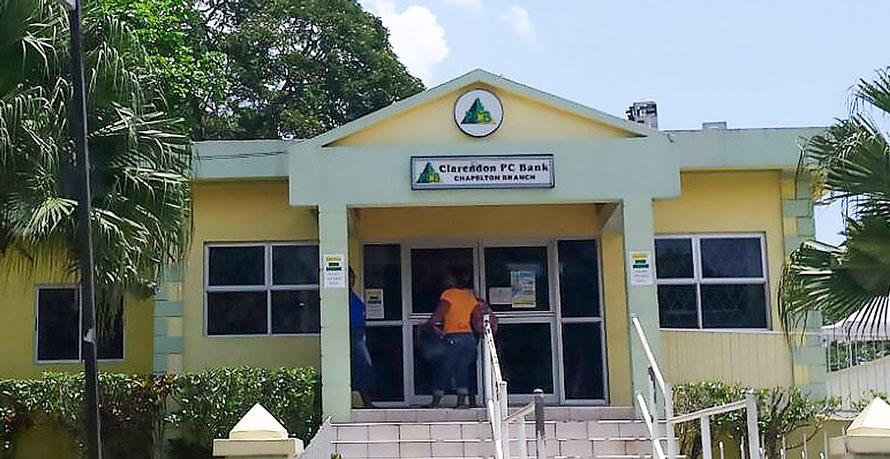JAMAICA | The Need to Capitalise Jamaica’s Agricultural sector

KINGSTON, Jamaica, April 18, 2024 - In a compelling discourse that spotlights the undercurrents of financial challenges beleaguering Jamaica's agricultural sector, Lenworth Fulton, the President of the Jamaica Agricultural Society (JAS), has voiced a critical concern.
Despite agriculture's pivotal role in sustaining Jamaica's food security and export potential, the sector remains in dire need of financial rejuvenation.
Fulton's insights reveal a historical journey of investment attempts, current financing hurdles, and forward-looking recommendations poised to catalyze agricultural prosperity.
A Legacy of Financial Endeavors and Emerging Challenges
The roots of Jamaica's agricultural financing stretch back to 1905 with the establishment of the People's Cooperative Bank (PC BANK), a cornerstone for early investment efforts.
Yet, the repeal of the agriculture credit board act and the subsequent shift of its functions mark a pivotal turn. This transition, coupled with the PC BANK's decline, has precipitated a financial vacuum since 1962, exacerbating the sector's fragility.
Blueprint for Revitalization
Fulton's blueprint for revitalization is ambitious and multifaceted. Central to his recommendations is the creation of a consolidated fund from cess on imported food products, ensuring a dedicated financial reservoir for agricultural development.
Moreover, redirecting a portion of the proceeds from the conversion of agricultural lands and the sale of agricultural assets into the sector's infrastructural and developmental projects emerges as a strategic maneuver to bridge financial gaps.
Fulton envisions a transformed landscape where strategic investments, bolstered by private-public partnerships, unlock the sector's dormant potential, envisioning a leap in foreign exchange earnings from agricultural exports.
The Financing Conundrum
![Nobody is interested in agriculture. The PC banks are dead, [and] the commercial banks not giving any loans to us because nobody nuh business ‘bout agriculture,” Lenworth Fulton told journalists recently.](/images/lenworth-Fulton-998.jpg)
Fulton underscores the dissonance between the sector's investment needs and the government's paltry budget allocations, a scenario compounded by the mismanagement of donor funds earmarked for agriculture.
Echoes of Unheeded Calls
The narrative of JAS's endeavors to seed an agricultural investment fund is one of aspiration met with inertia. Despite securing verbal blessings from political stalwarts for a proposal reminiscent of successful funds like the National Housing Trust, the envisaged comprehensive agricultural fund was truncated to merely support the dairy products sector. This initiative, though beneficial, reflects a broader narrative of missed opportunities and the need for a more inclusive investment strategy.
Dairy Sector Dilemma and Path Forward

Cultivating Prosperity: A Call to Action
As Jamaica grapples with the imperatives of food security and the aspirations of agricultural export growth, Fulton's discourse serves as a clarion call.
The narrative weaves a compelling case for reimagined financial strategies and collaborative efforts that can rejuvenate Jamaica's agricultural sector, ensuring its resilience and prosperity in the face of global challenges.
The contours of Jamaica's agricultural financing landscape, as delineated by Fulton, mirror a broader global dialogue on sustainable agricultural development and resilience.
This dialogue is not isolated but intertwined with the very fabric of national food security, economic stability, and environmental stewardship.
Fulton's forward-thinking recommendations, if adopted, could herald a new era for Jamaica's agricultural sector, one marked by innovation, sustainability, and inclusivity.
Bridging the Financial Gap: A Strategic Imperative

Furthermore, leveraging proceeds from the sale of agricultural assets and lands for development projects exemplifies a resourceful approach to financing. These recommendations, rooted in a vision of sustainable growth and resilience, underscore the urgent need for strategic investments in the sector.
The Role of Public-Private Partnerships
The emphasis on public-private partnerships (PPPs) represents a nuanced understanding of the complexities inherent in agricultural financing.
Fulton's call for PPPs in areas such as national irrigation, research, and orchard crops highlights the potential for synergistic collaborations that can amplify impact.
By fostering greater synergy among state actors, including JAMPRO, TEF, and academic institutions, Jamaica can harness collective strengths towards a common goal of agricultural prosperity.
Toward a Resilient Future

As Jamaica navigates these complexities, the insights and recommendations offered provide a roadmap towards a more resilient and prosperous agricultural sector.
The call to action is clear: a concerted effort from government, financial institutions, and stakeholders is essential to transform challenges into opportunities, ensuring that Jamaica's agricultural sector thrives in the face of global uncertainties.
This strategic approach to revitalizing Jamaica's agricultural sector, as advocated by Fulton, not only addresses immediate financial challenges but also lays the foundation for long-term sustainability and growth.
It is a testament to the resilience and ingenuity that define Jamaica's agricultural community, offering a beacon of hope for a future marked by prosperity, security, and sustainability.
-30-
